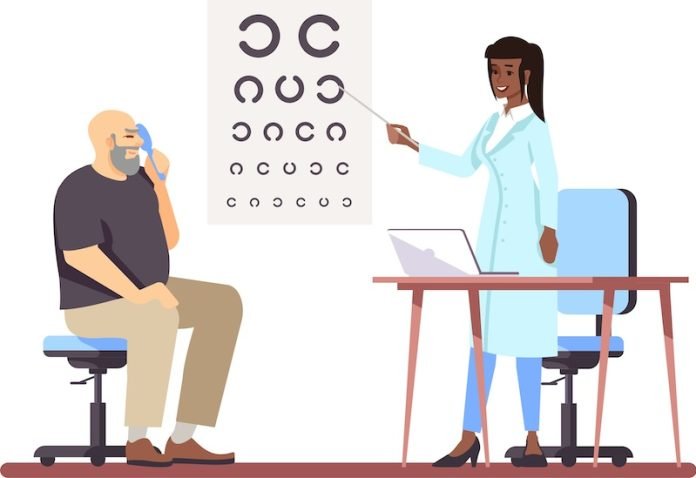
High blood pressure, also known as hypertension, is a common condition that affects many people. While most people know that high blood pressure can lead to serious heart problems, not everyone is aware that it can also harm your eyes.
Understanding how high blood pressure impacts your eye health can help you take steps to protect your vision.
One of the main ways high blood pressure affects the eyes is through a condition called hypertensive retinopathy. The retina is the part of the eye that captures light and sends signals to the brain to create visual images.
When blood pressure is too high, it can damage the tiny blood vessels in the retina. Over time, this damage can cause the vessels to narrow, leak, or even burst, leading to blurred vision or, in severe cases, blindness.
Research has shown that the severity of hypertensive retinopathy is closely related to how long and how high a person’s blood pressure has been elevated.
High blood pressure can also lead to fluid buildup under the retina, a condition known as choroidopathy. This can cause distorted vision or scarring that impairs sight.
Although less common than hypertensive retinopathy, choroidopathy can still have a significant impact on vision and overall eye health.
Another serious condition related to high blood pressure is optic neuropathy. This occurs when high blood pressure reduces the blood flow to the optic nerve, which transmits visual information from the eye to the brain.
Reduced blood flow can damage the optic nerve, leading to vision loss. This condition is particularly concerning because the damage to the optic nerve can be permanent.
Studies have found that people with high blood pressure are more likely to develop glaucoma, a condition where increased pressure in the eye damages the optic nerve.
The exact link between high blood pressure and glaucoma is still being studied, but it’s clear that managing blood pressure is crucial for reducing the risk of glaucoma and protecting eye health.
High blood pressure can also exacerbate diabetic retinopathy, a condition that affects people with diabetes. Diabetic retinopathy occurs when high blood sugar levels damage the blood vessels in the retina.
If a person with diabetes also has high blood pressure, the damage to the retinal blood vessels can progress more quickly, leading to a higher risk of vision loss.
Preventing and managing high blood pressure is essential for protecting your eyes. One of the best ways to do this is through lifestyle changes. Eating a healthy diet that is low in sodium and rich in fruits, vegetables, and whole grains can help lower blood pressure.
Regular physical activity, maintaining a healthy weight, and avoiding tobacco and excessive alcohol use are also important steps.
Medications are often necessary to control high blood pressure, especially if lifestyle changes alone are not enough. It’s important to take these medications as prescribed and to have regular check-ups with your healthcare provider to monitor your blood pressure and eye health.
Research has shown that effectively managing blood pressure can reduce the risk of developing eye problems and slow the progression of existing conditions.
Regular eye exams are crucial for detecting early signs of eye damage related to high blood pressure. During an eye exam, an eye doctor can look for signs of hypertensive retinopathy, choroidopathy, and other conditions.
Early detection and treatment can prevent further damage and preserve vision. The American Heart Association recommends that people with high blood pressure have their eyes checked regularly to monitor for potential issues.
In conclusion, high blood pressure can have a serious impact on your eye health, leading to conditions such as hypertensive retinopathy, choroidopathy, optic neuropathy, and glaucoma.
By managing your blood pressure through lifestyle changes and medication, you can protect your vision and reduce the risk of eye-related complications.
Regular eye exams are also essential for early detection and treatment of any problems. By taking these steps, you can help ensure that your eyes remain healthy and your vision stays clear.
If you care about high blood pressure, please read studies that early time-restricted eating could help improve blood pressure, and coconut sugar could help reduce blood pressure and artery stiffness.
For more information about blood pressure, please see recent studies about added sugar in your diet linked to higher blood pressure, and results showing plant-based foods could benefit people with high blood pressure.
Copyright © 2024 Knowridge Science Report. All rights reserved.



